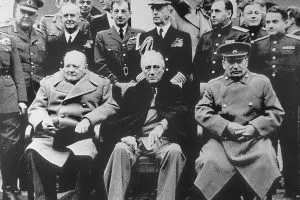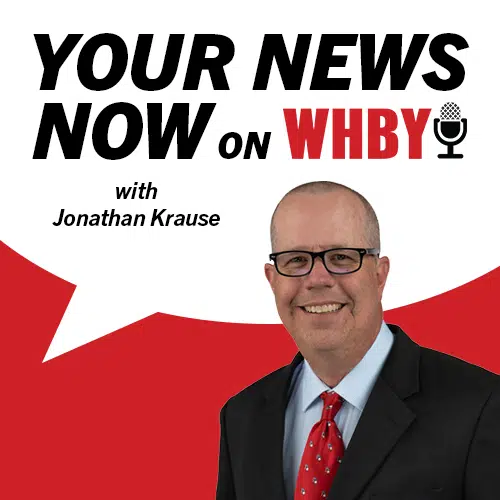Historians and political scientists I follow in the blogosphere and on social media are spending a lot of time today trying to come up with a comparison for what many Americans witnessed during last night first (and likely only) presidential debate.
Those with a fatalistic outlook are comparing it to the 1960 televised debate between then-Senator John F. Kennedy and then-Vice President Richard Nixon. That debate is most-commonly remembered for the public reaction to Nixon’s physical appearance–which was termed at the time as “swarthy”. Under the hot TV studio lights, Nixon appeared sweaty, with dark circles under his eyes. His gray suit also caused him to appear “washed out” in the black and white picture format. Nixon would go on to narrowly lose the election–with historians pointing to that debate performance as a key factor in his defeat.
Those with a bit more optimistic outlook are comparing it to the first debate in 1984, where then-President Ronald Reagan (already the oldest man to hold the office) appeared confused and weak while facing off against former Vice President Walter Mondale. I say that is an optimistic outlook, as Reagan came back much more focused in their second debate, diffusing concerns over his age and mental capacity by quipping “I will not make age an issue of this campaign. I am not going to exploit, for political purposes, my opponent’s youth and inexperience.“ The audience laughed, and when the cameras captured Mondale laughing as well, all the concerns from the first debate were washed away. Which is ironic, since we would later learn that by 1984, Reagan was already in the early stages of Alzheimer’s Disease and dementia.
Personally, I don’t think last night’s debacle warrants a comparison to another debate from our history. Instead, I would say the debate was most like the Yalta Conference of 1945.
For those not familiar (and given how history is taught nowadays, you probably are not), the heads of the three Allied powers, President Franklin Roosevelt, British Prime Minister Winston Churchill, and Soviet Premier Joseph Stalin met the Crimean city of Yalta to discuss the future of Europe in the wake of what appeared to be a guaranteed Allies victory–and how to end the war in the Pacific.
There is a famous photo that was taken of the three men outside one of the palaces that housed the negotiations that week which, at the time, showed the stark physical deterioration of Roosevelt and Churchill.

With his sunken eyes, pale complexion, and total reliance on a wheelchair for mobility, Roosevelt shows the strain of not only being President for 12 full years already, but also a war-time Commander in Chief for more than three years, and the lingering effects of polio that had left him crippled. In historic accounts written by researchers that were able to delve into the Soviet records of the summit, Stalin was actually shocked by Roosevelt’s appearance and diminished mental acuity–having last had face to face contact with him in Tehran back in 1943. FDR would be dead just a few weeks after that photo was taken
While Churchill had his own health issues (a life of fine drink, food, cigars, and not enough exercise left him with recurring respiratory issues–including a flare up in Yalta that week), the Prime Minister came to Crimea in a precarious political position. Confident in a victory in Europe on the horizon, British citizens swept Churchill’s Conservative Party out of the majority in Parliament shortly after Yalta–looking for a fresh start (which birthed the modern British “nanny state”).
So that left Stalin (himself battling health issues that led his doctors to demand the conference be held close to Moscow, as they did not want the Premier to travel that far), as the “strongest” of the trio. Recognizing that, Stalin grew confident that he could make demands most advantageous to the Soviet Union–like continued control and influence over the parts of Europe that his soldiers had “liberated” from the Nazis. Weak, and showing signs of mental decline, Roosevelt capitulated–not interested in possibly turning US military force against an ally whose strength he overestimated. Churchill–who saw Stalin for the thug that he was–couldn’t go it alone for the sake of Europe again, and caved as well. His pyrrhic victory was to come a few years later in coining the term “Iron Curtain” for the divided continent that bore his blessing.
So in comparing Yalta to last night, it’s easy to equate President Joe Biden with FDR. I look at the picture of that summit and can’t believe that he was just 63-years old at the time, 18-years younger than Biden is now. Roosevelt had won re-election as President just three months earlier, but campaigns at that time were very different. There were no televised debates. Roosevelt toured the country by rail car, speaking from the back of the train, propped up by security guards and the railing while he made a stump speech. Democrats were so concerned about his health (behind the scenes only) that they pushed for the removal of Vice President Henry Wallace (who was considered a weak leader and too left-wing) for Missouri Senator Harry Truman. That was prescient, as FDR died less then four months into his fourth term.
And that is where a lot of party leaders are today. Concerns about Biden’s health abound in the pages of every op-ed section and talking head morning show across the country. That has also led to serious discussions about whether Vice President Kamala Harris should stay on the ticket, as many voters may consider her to be the Democrat most likely to serve out the next four year term.
Now, you might think that I am going to equate Donald Trump to Joseph Stalin–the big, bad, bully who acts like a dictator and seeks revenge against all of his political enemies. But really, he compares more closely to Churchill, the leader of a party that is seeing its national standing shrinking–as voters look for alternatives and new voices to lead them. I apologize profusely to Churchill though, as to compare that master orator with the blathering fool that is Trump, is an insult of the highest magnitude.
So who then plays the role of Stalin coming out of last night? It is those that seek to do the most harm to the United States. Stalin’s successor, Vladimir Putin, Chinese “President” Xi Jinping, North Korean Supreme Leader Kim Jong Un, the mullahs that control Iran and pull the strings on the groups like Hamas, Hezbolah, and the Houthis, and Saudi Crown Prince Mohammed bin Salman. When they watched that debate last night they saw what Stalin saw in Yalta: two weak, old men leading supposedly stronger forces that would pose little to no threat to their desires for global domination.
Trump clearly stated last night that Russia is going to beat Ukraine, so why fight it? And that empowers Xi to more seriously consider a military reclamation of Taiwan. Biden has wavered on an official stance on Israel’s war against Hamas–hoping to shore up support from the far-left wing of his party–while both have shown no inclination to stop Iran from developing nuclear weapons, which would hang like the darkest imaginable cloud across the Middle East.
In 1945, two weak, old men were unable to rise to the challenge of a new international threat before it could take root and grow. In 2024, two weak, old men appear to be in the same position to make the same mistakes.







